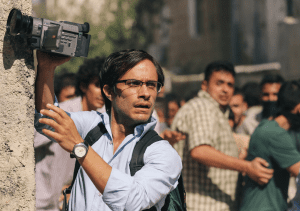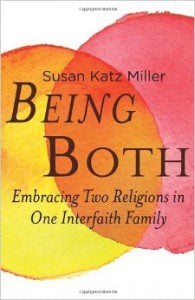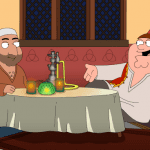 |
|
A bridge too far
|
After the September 11th attacks, many couldn’t be faulted for thinking that it was only a matter of time before Hollywood dealt with the American psyche by creating a series of Jerry Bruckheimer-style revenge fantasies. Instead (and thankfully), the reaction from major film studios has been muted (Spike Lee’s introspective “25th Hour”) or oblique (Michael Moore’s “Fahrenheit 9/11”).
But now that the question of who did it has been answered (you do agree, no?), the questions of “why?” and “how?” continue to be asked after three years of reflection and consequence. The hijackers have since been identified, demonized, and any further attempt to understand why they did what they did was met with a Coulter-esque “kill them all,” although forensic logic had always dictated we do otherwise. With so much emotion involved, it was inevitable that a more direct cinematic depiction would develop. Fortunately (and quite subversively), “The Hamburg Cell” arrives to set the tone.
“The Hamburg Cell,” which has its American premiere January 10th on HBO and Canadian premiere on CBC Television on January 16th, is a film few ever expected to see made. Making its world premiere last August at the Edinburgh Film Festival and airing in prime time shortly after on Britain’s Channel 4 pre-empted much of the outcry that a well debated film might experience so close to the third anniversary of the attacks. But soon after the film aired, much of the remaining criticism from victims’ groups (for not portraying more victims) and British Muslims (for the lack of positive images) had dissipated, in part due to the extraordinary effort made to keep this film tempered and accurate.
The film centers on two of the 19 hijackers, Lebanese Ziad Jarrah (succinctly played by Karim Saleh), who later crashed United Airlines Flight 93, and cell leader Egyptian Mohammad Atta (played by an Arab actor described as “Kamel”, though he’s been outed online). Because the two are opposing personalities – wealthy and westernized Jarrah, with a Turkish lover and no aversion to alcohol and the awkward loner Atta, who cowers in the presence of his parents – it’s difficult to see a terrorist stereotype portrayed (which could be a good or bad thing depending on your point of view). Intentionally, more questions than answers are raised and the resulting complexity lends itself to dramatic tension, though it is not merely drama for drama’s sake.
Over time, Jarrah succumbs to the influence of his new friends and becomes contentious with girlfriend Aysel Senguen. “What is more important to you – jihad or marrying me?” asks Aysel. “Why would I marry a man who will be dead in two years?” Good question. Jarrah’s last words to her in a phone call before he boards the Flight 93 are “I love you,” but he gets onboard anyway, despite the growing tension with Atta, who deplores his double life. Atta is much more of an enigma, though Kamel plays the role with conviction.
British director Antonia Bird and screenwriters Ronan Bennett and Alice Pearman extensively researched the film to include as much historically relevant information as possible, including interviews with the Jarrah family and people who knew the hijackers in Europe and America (though they inexplicably have Atta and company prepare Swiss Army knives instead of box cutters). They also were careful to identify how much Islam to infuse in the film, which of course can’t be avoided. There are the expected fiery exhortations from those that influence Atta and Jarrah and the requisite protest from members who realize where all this is going before they get kicked out of the mosques. While uncomfortable to watch, there is no way to sugarcoat what many of us know to be plausible scenarios.
But how uncomfortable is it really? The film has since been screened at the Dubai International Film Festival, where actor Kamel was wary of subsequent Arab reaction. There were reservations from some about exploring the political motivations more, but overall the film was well received – a good sign for Muslims elsewhere interested in seeing it for themselves. Ultimately, the producers managed to create a film so balanced, that both Arab and British audiences were mildly critical and quietly approving in roughly equal amounts (American audiences, of course, may be another matter).
As it plays out, the film exists not to demonstrate that these were nice people (as many in contact with them thought), but to depict how people perceived as nice guys by so many could find the inhumanity within themselves to carry out mass murder. “They didn’t have that evil gleam in their eye that gives away the screen baddie, they weren’t born with suicide bomber DNA,” says Bennett. “Something persuaded these guys to do what they did. They were ordinary people, more like us than we’d care to imagine or admit. It doesn’t do any good to pretend otherwise.”
However, historical depiction can only go so far – it’s up to the viewer to determine for themselves what their motivation may have truly been. Many thought not filling in more blanks was the film’s fatal flaw, since most people with any interest in this issue only want answers. The film alone can only speculate and never offers to do otherwise. But in doing so, this film puts to celluloid the screenplay that has been playing in everyone’s head anyway since the investigations began – cell members slipping through airport security, attending the Florida flight schools, meeting other extremists at London’s Finsbury Park Mosque and, of course, beginning their journey as strangers who meet in Hamburg, Germany.
After a series of events that suggest more volatility in the plan than may have been expected, Jarrah and Atta arrive at Newark Airport and it is here that the film finds its close. While many may feel that the real drama comes after that time – the slitting of pilot’s throats, workers falling to their deaths from the towers – the directors sensibly chose not to belabor the obvious (could any actor seriously re-enact Todd Beamer’s “Let’s roll!” outcry?). To combine a very necessary commemoration of the victims with this story would have done neither justice. The notable lack of melodrama and resultant pensive tone seems entirely appropriate and unbiased in hindsight.
Even so, “The Hamburg Cell” is so chilling in its realism that few could label it apologetic. Knowing the tragedy that is to come as the characters find their way to New York makes the film, on a dramatic level, far more effective. Every move by Atta and Jarrah is mirrored in the viewer’s subconscious with a view to the fragility of the sequence of events – Atta’s father pleading with his son to get married and raise a family, Aysal begging Jarrah to change his ways and follow her moderate Islam, and Jarrah receiving a speeding ticket two days before the attacks (indicating that he may have wanted to get caught) – again, all events linked to historical research.
Many will ask themselves throughout the film what interventions by family and bystanders could have prevented the chain of events from occurring. For the victims of the attacks and for the conscience of the Muslim world, the question is worth asking.
Zahed Amanullah is associate editor of altmuslim.com. He is based in London, England.











